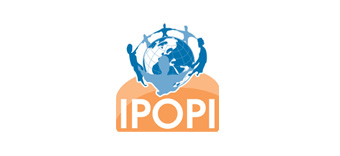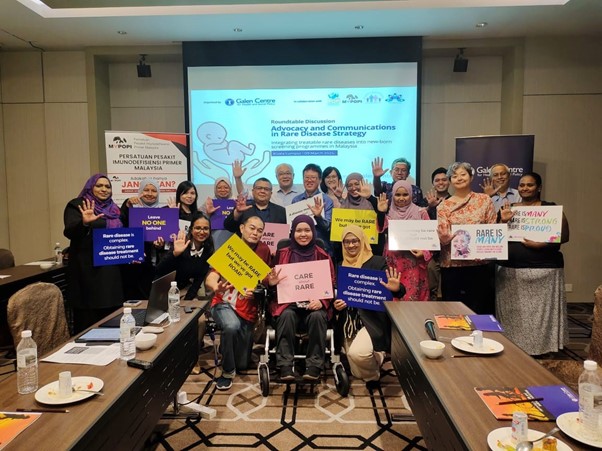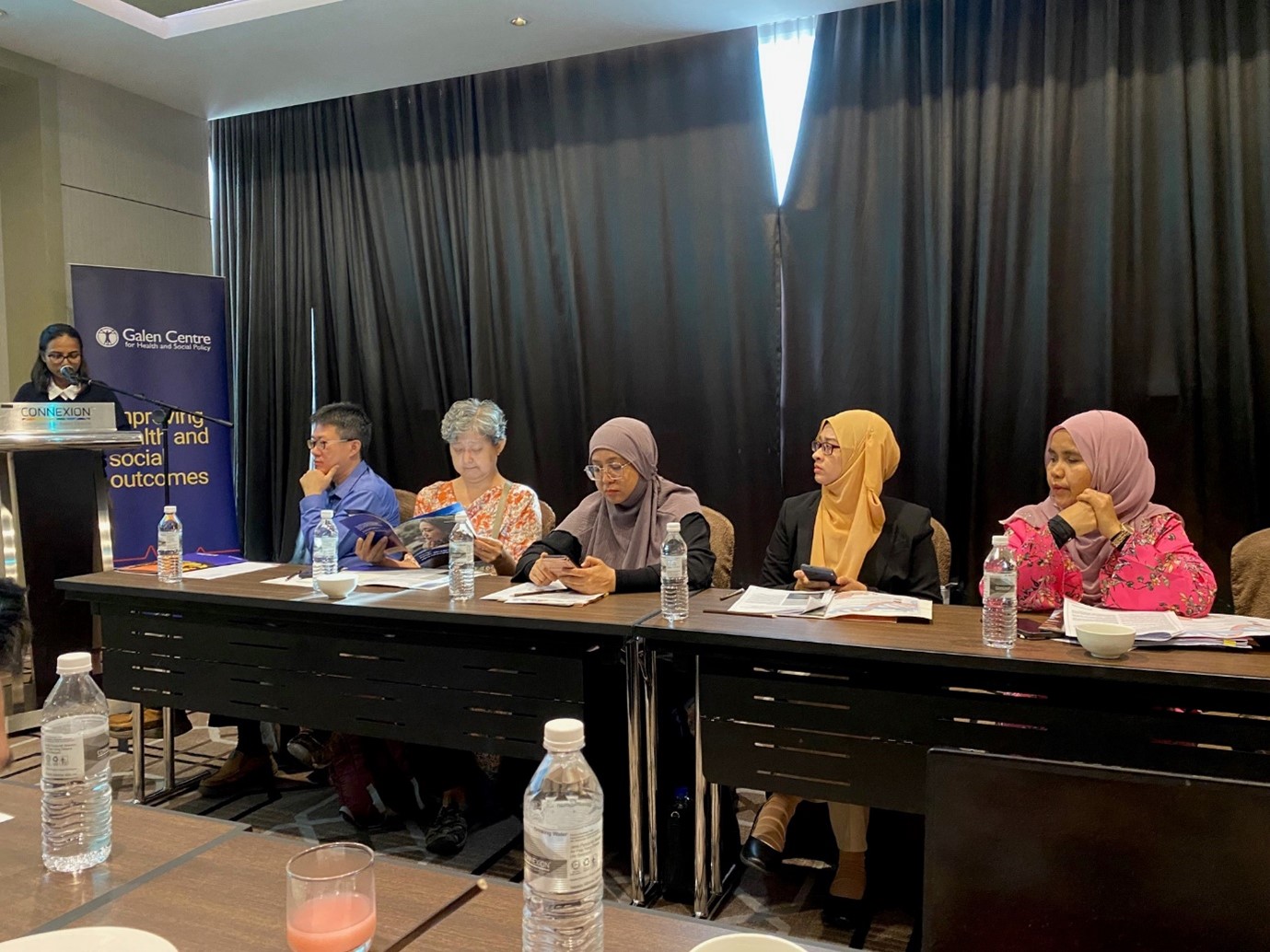June 17, 2024
Malaysia: Newborn Screening for SCID for upcoming International Neonatal Screening Day
Introduction:
Malaysia’s National Newborn Screening (NBS) covers physical – head to toe, biochemical – G6PD & Thyroid Function, Special – Hearing & Retinopathy of prematurity only. Therefore, screening newborns for rare diseases as an approach to public health is a vital component of health policies. It has a proven track record in identifying and managing metabolic and congenital disorders. Early detection through newborn screening offers several advantages, such as chronic condition management, quality of life improvement, and cost-effectiveness.
Malaysian Patients Organisation for Primary Immunodeficiencies, MYPOPI is selected and tasked to lead the NBS advocacy campaign in Malaysia.
The NBS advocacy campaign is aimed at treatable rare diseases focusing on Severe Combined Immunodeficiency (SCID) and Spinal Muscular Atrophy (SMA). Screening newborns for SCID and SMA is significant, as early detection can, significantly, improve outcomes through prompt intervention and treatment.
This report outlines the collaborative efforts being made in Malaysia to implement SCID and SMA newborn screening, involving various stakeholders.
Background:
SCID is a group of rare, life-threatening genetic immune disorders characterised by profound deficiencies in T cells, B cells, and sometimes NK cells. SMA is a genetic disorder affecting the motor neurons of the spinal cord and brainstem, leading to progressive muscle weakness and atrophy. Early detection of these conditions allows for timely intervention, significantly improving the quality of life and reducing mortality for affected infants.
Collaborative Development & Stakeholder Engagement:
MYPOPI, with the guidance of IPOPI, has spearheaded efforts to introduce SCID and SMA screening into the national newborn screening program. Galen Centre for Health and Social Policy was engaged as a neutral 3rd party agency to bridge between patients’s advocacy groups (PAGs) and the Malaysian Ministry of Health Malaysia.
Collaboration with medical professionals consists of clinical immunologists, geneticists, paediatricians, pathologists and PAGs, namely Malaysia Rare Disorders Society (MRDS), and Spinal Muscular Atrophy (SMA) Malaysia. It has been established to ensure comprehensive dialogues, planning and calls for action towards implementation of NBS with the Ministry of Health.
On 18 November 2023, the first workshop on new-born screening was held to kick start this pilot NBS campaign, riding on the banner of rare disease; The workshop was titled “New-born Screening, Rare Disease and Public Policy: Integrating Treatable Rare Diseases into new-born screening programmes in Malaysia”. This workshop looks at the current landscape of newborn screening in Malaysia and is working towards a sound public policy framework within the healthcare space. The workshop was attended by 35 individual stakeholders from relevant government ministries, private sector organisations, patient support groups, patient advocates and academicians.
Key Highlights:
- Foster and strengthen continued collaboration among multisectoral stakeholders, including patient advocacy groups.
- Strengthen and empower the role of the Malaysia National Rare Disease Committee and its subcommittees.
- Identify and address challenges and limitations in expanding newborn screening by addressing funding, manpower, and public awareness issues.
- Develop clear guidelines on ethical genetic testing, emphasising informed consent, confidentiality, and data protection.
Our initial plan was to have two workshops – whereby the second workshop would be to build on from the previous workshop, create a more concrete action plan and move forward with awareness campaigns in Malaysia. However, we made a bold decision to change the dynamics by having a roundtable discussion with representatives of the Malaysia Rare Disease Committees, the Family Health Development Division, and the Malaysian Ministry of Health, Malaysia on 09 March 2024 to identify and address challenges and possibilities in expanding national newborn screening to include SCID and SMA at the soonest possible timeline.
The roundtable discussion was attended by 20 individual stakeholders from the Malaysia Rare Disease Committees within the Malaysian Ministry of Health Malaysia, Family Health Development Division, Ministry of Health, Malaysia, high-level medical experts and board members from MYPOPI, SMA Malaysia and MRDS.
Strategically, we played a moving short video of a survivor SCID patient from a rare tribe of Penan from Limbang, Sarawak, Malaysia, and two short SCID parents’ testimonies to stir the hearts of our attendees before we moved into heavy discussions.
The roundtable discussion went exceptionally well better than expected with the key leads from the Ministry of Health and the Malaysia Rare Disease Committees agreeing to insert SCID and SMA budget to be tabled to the Minister of Health for the next parliament sitting. Hence, MYPOPI and SMA Malaysia expert doctors are tasked to compile and submit to MOH the budget involved in having NBS for SCID and SMA within a week; which we have accomplished.
As finale To finalise, we premiered the mother and the toddler SCID survivor from the rare tribe of Penan, Sarawak, Malaysia as evidence and strong testimony of their right decision to give SCID babies a second chance to live, with the implementation of the extended National NBS programme to include SCID and SMA.
Conclusion:
In acknowledgement of collaborative efforts, we give a – million thanks to IPOPI for choosing to support Malaysia as a pilot to implement SCID and SMA newborn screening in Malaysia which represents a significant step forward in improving the healthcare outcomes of infants. Through the collective expertise and dedication of stakeholders, Malaysia is poised to achieve comprehensive newborn screening coverage, ultimately saving lives and improving the quality of life of affected individuals and their families.
Recommendations:
– Continued collaboration and coordination among stakeholders.
– Allocation of adequate resources and funding to sustain the program by implementing awareness campaigns on SCID and SMA NBS at the national level.
– Evaluation and monitoring of screening outcomes to guide future improvements and expansions.
MYPOPI, SMA Malaysia and MRDS are proud to have this article that serves to update stakeholders on the progress and challenges faced in the collaborative development of SCID and SMA newborn screening in Malaysia, highlighting the importance of ongoing support and commitment to ensure the success of this vital public health initiative.



